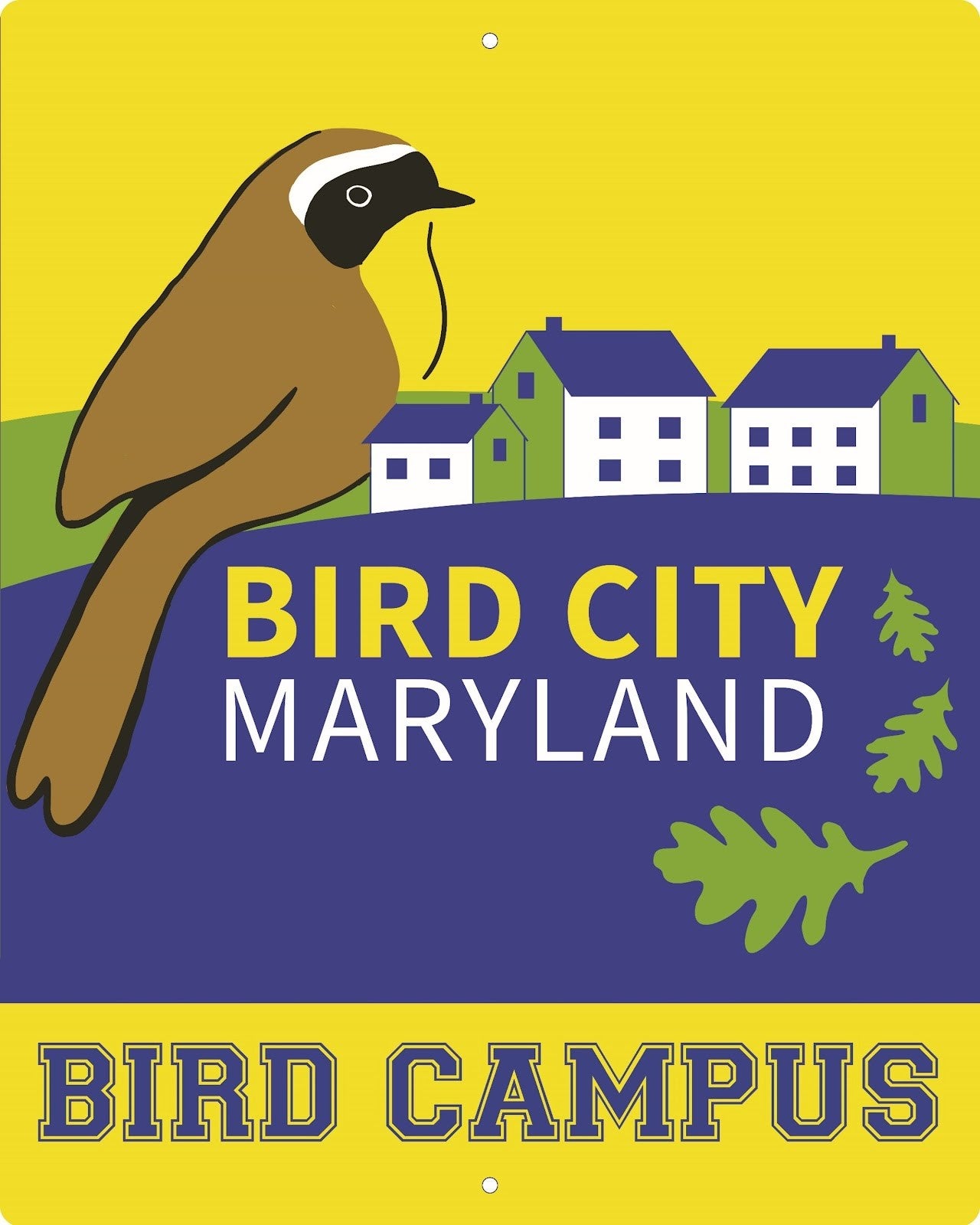Maryland Bird Campus
Our entire College Park campus was designated as a High Flyer Bird Campus in 2024 by the Bird Conservation Network and Bird City Maryland.
The Bird City Maryland program was started in 2019 as a way to encourage communities in Maryland to
enhance the environment for birds and educate the public about the contributions birds make to a
healthy community and is an initiative of the Maryland Bird Conservation Partnership.
In 2023 Bird City Maryland joined the National Bird City Network, a joint venture of the American Bird Conservancy and Environment for the Americas. The Network unites and connects independent Bird City programs
throughout the hemisphere who work directly with local communities to envision and complete bird-
friendly actions. Together we form a powerful collaborative force – connecting people and helping birds
across the hemisphere.
The Bird Campus program was added in 2021 to recognize academic campuses. A Bird Campus is a 2 or
4-year college or university that is actively engaged in avian education and research and committed to
reducing threats to birds. Bird Campuses engage their community by celebrating World Migratory Bird
Day annually. While other states have Bird City programs, Maryland is the first to offer a campus
recognition program.

The High Flyer status is the highest level of certification for the Bird Campus program and exemplifies the support of the University's Arboretum and Botanical Garden in bird conservation efforts.
Students at UMD have used increasing campus bird habitat as a learning exercise. One example of this was within the School of Architecture Planning and Preservation for Students in Studio ARCH 408 in the summer of 2021. Those students explored how the south-facing facade of the School of Architecture could be modified to increase opportunities for bird habitats. There are also clubs on campus that work to improve bird habitats on campus such as our chapters of the American Ecological Engineering Society who have received a $300 grant to support their efforts. The UMD Community Learning Garden, a collaboration between faculty and students, supports an orchard on campus that provides a habitat for birds.
The University of Maryland Golf Course has a little more than 14 acres of native areas on the course. It is one of only 19 International Certified Audubon Cooperative Sanctuaries for Golf in the state of Maryland and has maintained this certification since 2003.
In 2020, the Prince George's Audubon Society created its Audubon Wildlife Habitat Program, which advises Prince George’s County residents who want to create wildlife habitat on their property. PGAS trained Epsilon Eta members to become Wildlife Habitat Advisors. These students then reviewed five garden sites on campus and submitted reports to the Arboretum which will assist staff in continuing to hone these areas for education and habitat purposes.
Members of the University’s student chapter of the Wildlife Society, track how many and what kind of birds have died from window collisions. The collected data is used to determine which buildings are most threatening to birds and may contain clues on how to prevent deaths.
For new buildings on campus, the UMD Arboretum has been investing extra resources to increase the presence of native gardens on campus through enhanced landscapes. The Edward St. John Learning and Teaching Center as well as the Iribe Center for Computer Science and Engineering both feature native landscapes and are two of the newest buildings on campus.
Additionally, an area of land that had been turf has been turned into a reforestation area over the past five years. This area is a little over 8000 sq. ft. and has been converted to a mixutre of overstory trees such as oaks and beeches, understory trees such as redbuds, a shrub layer with things like red chokecherry, and herbaceous perennials such as coneflower and native aster.
There is still work to be done and the Arboretum thanks the Audubon Student Chapter of UMD in their support.
